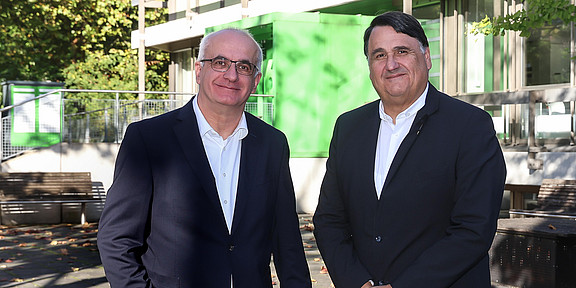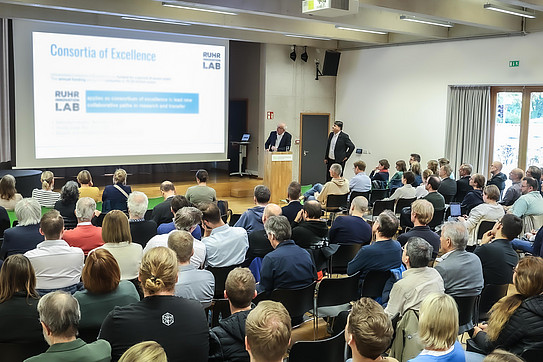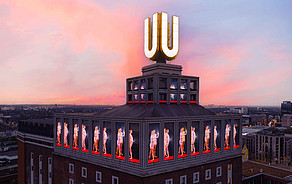Rectors Present Ideas for Ruhr Innovation Lab

The two universities had qualified in May for the next round of the Excellence Strategy by securing a total of three Clusters of Excellence. In this round, up to 15 Universities of Excellence or University Consortia of Excellence may be funded. The competition includes ten defending titleholders as well as ten additional challengers. “Through the Clusters of Excellence we have demonstrated that we conduct research at an international top level in the Ruhr region,” said Manfred Bayer, Rector of TU Dortmund University. “Now the aim is to convince in the next round with innovative and bold concepts for a university consortium of the future.” His Bochum colleague Martin Paul added: “With the Ruhr Innovation Lab we want to create a joint space for experimentation and testing that opens up new freedoms for research. At the same time, we are making use of the dense network in the Ruhr region to carry our ideas into business and society.”
The Ruhr Innovation Lab builds on the long-standing cooperation that TU Dortmund University and Ruhr University Bochum have maintained with the University of Duisburg-Essen since 2007 within the University Alliance Ruhr (UA Ruhr). This has built a broad foundation of valuable preparatory work, for example through the joint study space RuhrCampus³, the support of early-career researchers by the Research Academy, or international networking through liaison offices on three continents. With the establishment of four Research Centers and a College in 2021, the partners also gained experience in building cross-university structures in cutting-edge research.

Plans to strengthen research and transfer
The joint profile areas of Ruhr University Bochum and TU Dortmund University are, as both rectors point out, defined by the overlap between the three Clusters of Excellence and the Research Centers: they include solvation science, trustworthy AI, novel materials, and the nature of matter. In the consortium, three further fields with high development potential are to be identified and expanded. In parallel, the aim is to strengthen technology and knowledge transfer into the region and beyond. The approval of the BRYCK Startup Alliance in July 2025 demonstrated that the Ruhr region’s close cooperation between business and universities has great potential in supporting start-ups. Locations in city centers such as the Dortmunder U and the Haus des Wissens in Bochum also bring science into society as part of culture.
A website presenting the consortium is scheduled to go live in mid-October. Members of both universities will then be able to learn more about the concrete plans at a digital town hall meeting on 13 November, one day after the application deadline. The review of the application will be supplemented next spring by a multi-day on-site visit in Bochum with excursions to Dortmund. A decision is expected in early October 2026. The funded concepts will then start in January 2027 with funding of between 15 and 28 million euros per year. The designated Universities of Excellence and University Consortia of Excellence will, for the first time, receive permanent funding, but will be subject to evaluation every seven years.





